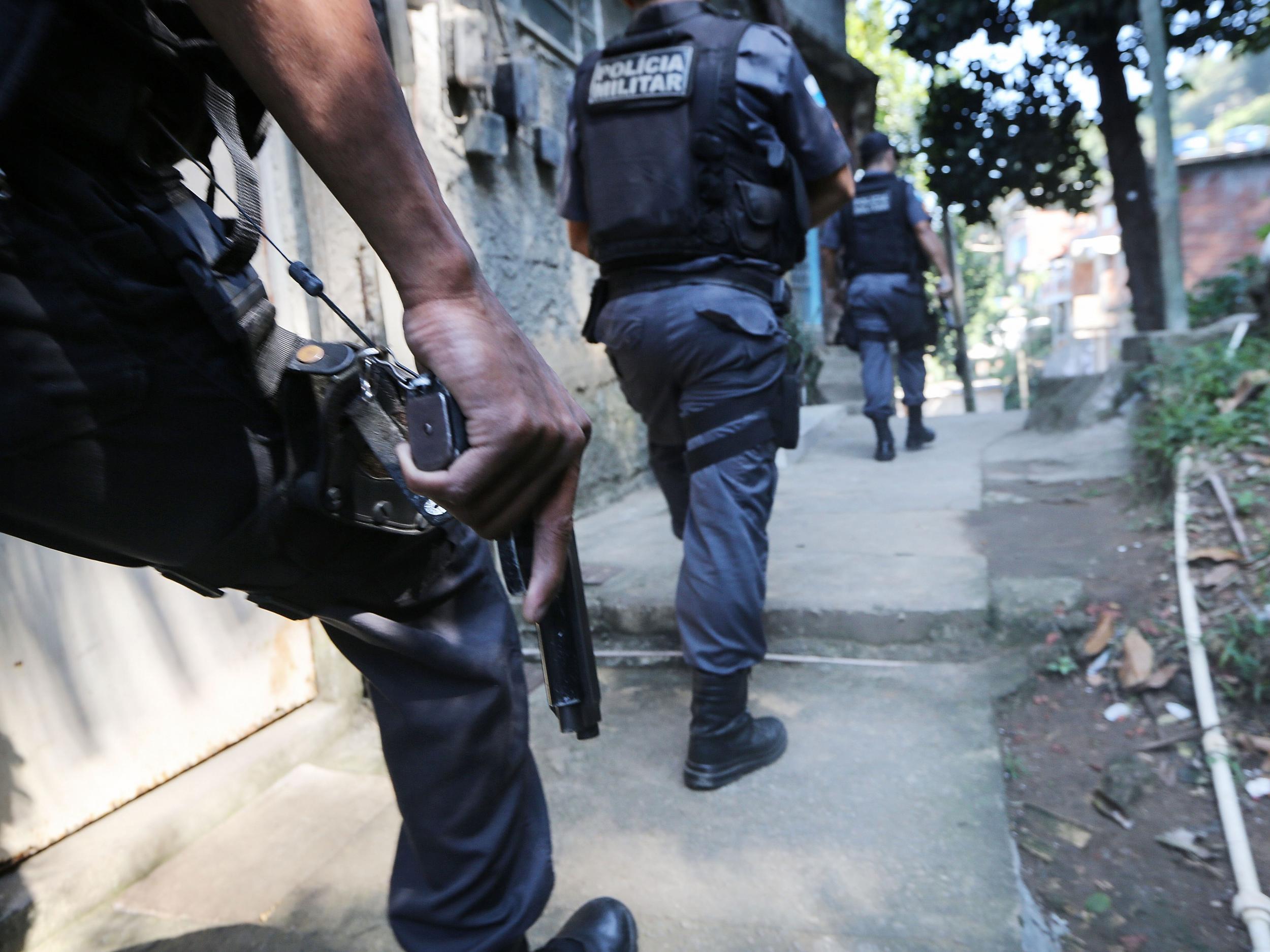Brazil breaks own record for number of murders in single year as deaths hit 63,880
Rapes also up 8 per cent to 60,018, while 4,539 women were murdered, a rise of 6.1 per cent

Your support helps us to tell the story
From reproductive rights to climate change to Big Tech, The Independent is on the ground when the story is developing. Whether it's investigating the financials of Elon Musk's pro-Trump PAC or producing our latest documentary, 'The A Word', which shines a light on the American women fighting for reproductive rights, we know how important it is to parse out the facts from the messaging.
At such a critical moment in US history, we need reporters on the ground. Your donation allows us to keep sending journalists to speak to both sides of the story.
The Independent is trusted by Americans across the entire political spectrum. And unlike many other quality news outlets, we choose not to lock Americans out of our reporting and analysis with paywalls. We believe quality journalism should be available to everyone, paid for by those who can afford it.
Your support makes all the difference.Brazil has broken its own record for the number of murders in a single year after the South American country saw 63,880 people slain in 2017, according to new report.
The shocking number – a rise of 3% on the previous year – was revealed by the Brazilian Forum of Public Security (BFPS), an independent organisation that tracks national crime statistics.
Rapes were also up 8% to 60,018, while 4,539 women were murdered, a rise of 6.1%.
The grim homicide milestone underscores the deteriorating security in Latin America’s largest nation as a presidential election approaches.
Brazil has long been the world leader in overall homicides, and its murder rate is also one of the highest. Security groups are raising the alarm about the continued rise in killings – there were 61,597 homicides in 2016 after several years below 60,000.
“I’m terrified to leave the house alone,” said Maria Jacemar Ugulinho, a 60-year-old administrative manager in Rio. “Three of my nephews already moved abroad to flee the violence.”
The BFPS said organised crime is one of the reasons the rate keeps growing, but it added increasingly violent police operations also play an important role. Those operations come as authorities seek to confront drug gangs and other criminal organisations that control many of Brazil’s favelas; slums with limited public services.
The report counted an average of 14 deaths a day at the hands of police officers, which it said was a 20 per cent increase over last year.
Critics worry cases of police violence will worsen, especially in Rio de Janeiro, where president Michel Temer has handed all control over public security to the military until the end of the year.
Addressing violence against women, the report said more than 1,000 women were killed in hate crimes tied to their gender. Even though Brazil has strong domestic abuse laws, violence against women is regularly in the news. Most recently, security footage of a man beating his wife moments before she died shocked the country.
Violence has been a central issue for candidates in October’s presidential election. Far-right congressman Jair Bolsonaro, who is running second in opinion polls, has promised to crack down on crime, in part by giving police “carte blanche” to fire on criminals.
Samira Bueno, executive director of the Brazilian Forum for Public Security, argues for a different approach. She thinks the focus should be ensuring that different law enforcement branches work together.
In Brazil, military police are in charge of patrolling the streets, but work separately from the intelligence operations of municipal police.
“The government primarily invests in the military police because voters want to see a heavy police presence on the street,” Ms Bueno said. “This leaves the civil police marginalised.”
Last month, the government introduced a single system for public security that aims to improve collaboration among different police sectors.
Ms Bueno said improved cooperation is crucial because at present most homicide cases in Brazil never get solved. The lack of convictions “sends the message, ‘You can kill, and get away with it’,” she said.
Additional reporting by AP
Join our commenting forum
Join thought-provoking conversations, follow other Independent readers and see their replies
Comments